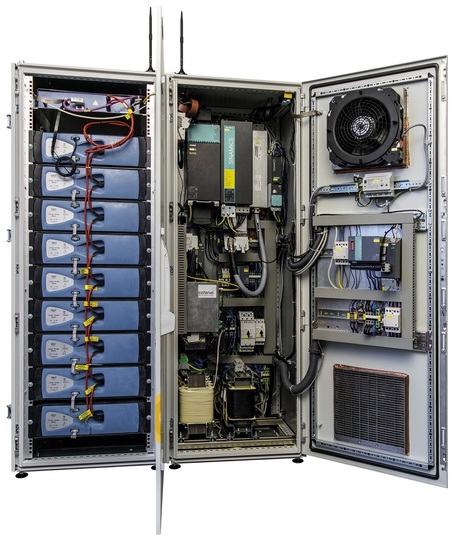Energy storage prices are dropping much faster than anyone expected, due to the growing market for consumer electronics and demand for electric vehicles (EVs), McKinsey states. Major players in Asia, Europe, and the United States are all scaling up lithium-ion battery manufacturing to serve electric cars and other power applications. Battery-pack costs are down to less than $230 per kilowatt-hour in 2016, compared with almost $1,000 per kilowatt-hour in 2010.
Reduce peak consumption levels
McKinsey research has found that energy storage is already economical for many commercial customers to reduce their peak consumption levels. At today’s lower prices, storage is starting to play a broader role in energy markets, moving from niche uses such as grid balancing to broader ones such as replacing conventional power generators for reliability, providing power-quality services, and supporting renewables integration
Evolving business case also for households
„Further, given regulatory changes to pare back incentives for solar in many markets, the idea of combining solar with storage to enable households to make and consume their own power on demand, instead of exporting power to the grid, is beginning to be an attractive opportunity for customers, sometimes referred to as partial grid defection. We believe these markets will continue to expand, creating a significant challenge for utilities faced with flat or declining customer demand. Eventually, combining solar with storage and a small electrical generator (known as full grid defection) will make economic sense—in a matter of years, not decades, for some customers in high-cost markets“, McKinsey states.
Unique flexibility as an asset of energy storage
“Energy storage can be deployed both on the grid and at an individual consumer’s home or business. A complex technology, its economics are shaped by customer type, location, grid needs, regulations, customer load shape, rate structure, and nature of the application. It is also uniquely flexible in its ability to stack value streams and change its dispatch to serve different needs over the course of a year or even an hour. These value streams are growing both in value and in market scale”, McKinsey says. (HCN)
Read more about energy storage
Stay informed, get our free newsletter twice a week, register here
More useful information:
http://www.pveurope.eu/News/Energy-Storage/Energy-storage-LG-Chem-Europe-surprised-by-high-demand
https://www.pveurope.eu/solar-storage/checklist-residential-energy-storage-systems








